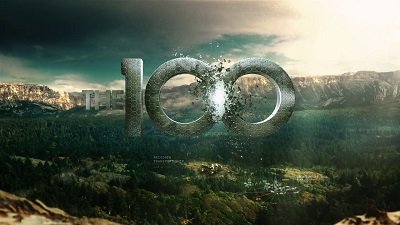As this fortnightly column completes a century, we honour the indestructible force of the human spirit, and look back at the miracles and disappointments that dot the landscape of medicine.

It’s time to celebrate! The article you are reading happens to be the 100th in the series of fortnightly medical anecdotes. Over the past 4 years, the many (or should I be honest enough to say, few) people who read this column regularly have been through the entire gamut of human emotions with me, with added revelations of truth and untouched horizons of mystery.
At the very beginning of these 100 articles, I had written about how I nervously burred my first hole in the skull of an alcoholic and evacuated a blood clot to see him instantly awaken from a stupendous coma. And in one of the last few ones, we’d evolved to extricating tumours from parts of the brain in a way that was once inconceivable a few years ago. In all these stories, we’ve honoured the indestructible force of the human spirit, but we’ve also learnt that nature has the final word. In an attempt to provide the reader with a glimpse into the life of a surgeon, I’ve shared some deeply personal experiences – the highs, the lows, the resilience of families, the determination of doctors, and the dissonance of nature. I’ve laid bare what it means to lose patients you care for with savage tenacity and the exuberance of saving lives that were deemed impossible to survive. I believe these narratives have allowed the layperson an honest entry into a world of medicine that there are so many presumptions about.
I write to you today after having gone through the archives, reminiscing of patients’ skulls being opened and operated upon while they are fully awake, a pea-sized tumour in the pituitary gland in the brain being the cause of a couple’s infertility, someone who almost died on the operating table and made a complete recovery, and someone who had a perfect operation but died soon after. There were patients who insisted on admission before sunrise and discharge before sunset and on the surgeon making an incision at an hour approved of by their pandit. We learnt how disconnecting a short circuit in the brain can cure intractable epilepsy, and how some patients who go to a dentist for a toothache actually need brain surgery. There are stories of how little children have battled multiple surgeries and unsurmountable odds to lead normal lives, and then there are stories of no matter how hard surgeons try, they can’t always vanquish fate. I’ve met patients who’ve dealt with their afflictions with such grit and grace it has given me goosebumps. I’ve told you about how a brain tumour was the source of one man’s pathological laughter, and how an excess accumulation of fluid in the head was the cause of an old lady’s dementia. I have written about how we got a paraplegic bride walking two weeks before her destination wedding, and I have cautioned against how spinal stenosis is misdiagnosed as Parkinson’s and how a brain tumour can mimic a slip disc. I have also counselled that not all back and neck pain are muscular, and that all forgetfulness cannot be attributed to old age. I have mentioned the influence that mentors, nature, faith, luck, and animals have on the work we do. I have described in heartbreaking detail what it means for a doctor to be afflicted with the very affliction they have spent a lifetime treating. And why closure is often a myth.
I believe that these vignettes of love, laughter, sorrow, and triumph have also been educational, empowering people to take serious charge of their own health and that of their loved ones in a fun way. People now know to get an MRI scan of their brain for a headache that does not seem like it’s going away and one of their spines if a back or neck ache seems pesty. People now know that all visual disturbances are not solely related to the eye and all loss of hearing cannot be attributed solely to a problem within the ear. I believe that these articles have helped people look deeper, both literally and metaphorically.
Suffering from an ailment is a great leveller. It makes no distinction between the affluent and the indigent, race and religion, or the umpteen genders we now know about. Each and every one of us has, at some point in our life, felt pain. And just when I thought I had seen everything in my field, I came across something I’d yet to see.
“I’ve had this vague pain in my mid back for the past three months,” said Neha, a high-functioning executive in her 30s, who had come to me with her MRI scans. She wore her hair in a bob and sported a fashionable nose ring. She gave me directions: “A little to the left… slightly higher…” as I narrowed onto the spot between her shoulders blades when she finally winced in agony. I couldn’t feel any swelling, but the MRI showed a 4 cm chunk of something within the paraspinal muscle at the mid-thoracic level that was shaped like the eye of a tiger, slightly ovoid at the periphery with a perfectly round centre. “This is outside the bone of your spine but within the muscle,” I emphasized on the anatomy to reassure her that there was nothing within the spine and would not paralyze her, which is the worry of most people when they hear the word spine. “It could be a tumour, it could be a cyst,” I added, “I’m not exactly sure, but if it’s causing you so much pain, just remove it,” the surgeon in me proclaimed. “I don’t want to go under the knife,” she admitted reluctantly. “We have other instruments we can cut with!” I joked, reassuring her that this was a daycare operation and that she would be able to go home a few hours after it. After a very detailed discussion, she left me with a “I’ll think about it.”
Two weeks later, she called saying she wanted to schedule surgery because the pain was becoming unbearable. When I met her the evening before surgery, I explained that we would localize the lesion with an ultrasound and get the radiologist to mark the exact spot of the swelling so we could cut right over it the next morning, as there was no palpable lump on examination. “On second thought, let us do the ultrasound in the operation theatre itself, after flipping you prone,” I instructed the team, as there was no point in duplicating work because we had a machine in the OT. So, the next day, after giving her general anaesthesia and turning her on her tummy, we brought in the ultrasound machine to localize the lesion.
I smeared the skin with jelly and placed the ultrasound probe over it, directly over an intricate tattoo of the letter N that she had on her back. To our bewilderment, we couldn’t see any ‘eye of the tiger’ anymore; it wasn’t even the eye of a little kitten. We adjusted the parameters of the machine but still nothing. We called in a senior radiologist to find it for us. She said there was nothing there. We rechecked if the MRI she had come in with was hers; it had her name on it. But it had been two months since she had gotten the scan done. “Let’s just open her up and see what we find,” one of my colleagues suggested, “It has to be somewhere there,” was his justification. “And if we don’t find anything, we’ll just have ruined her tattoo!” I guffawed. Instead, we shifted her to the MRI room under anaesthesia to understand what was going on. The lesion had completely disappeared. We all looked at each other’s faces with foolish grins ensconcing our surprise and confusion. “To live wonder-smitten with reality is the gladdest way to live,” I had read somewhere in Maria Popova’s writing.
I explained to her mother and sister who came along that there was nothing there to remove anymore. “In hindsight, I should have repeated an image before taking her to the OT,” I confessed. “It was probably a cyst that has disintegrated or a nodular inflammation of the muscle that went away with the anti-inflammatories, the pain taking its own time to resolve, is my understanding,” I explained.
When she awoke from anaesthesia, I told her what had happened. “Why do I still feel pain?” she asked, equally confused as me but happy that she had avoided surgery. “It’ll pass,” I reassured her, without understanding why but knowing that most pain does. A week later, her pain was gone.
There is a rare entity described in medicine called disappearing lesions. They are most often cysts. Some of them can be seen and felt to go away on their own. But others, like Neha’s, do so when you least expect them to. Everything that is possible is real, even the things that may eventually disappear.
As we live and learn, I’ll see you at a hundred and one.




